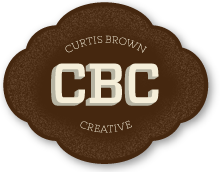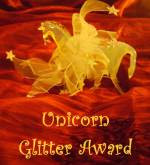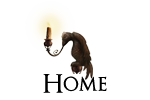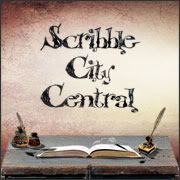" Because she was a princess, she had a pegasus."
How can you not read on after that? It's simple, it's factual, and it pulls you right in with its strong little story claws and holds you tighter than a wyvern's prey, so that you immediately want to find out more. Now, I've been lucky enough to get my hands on an ARC of Pegasus, and in the best tradition of Robin's famed footnotes, you can find out below what happened when it arrived one sunny morning*. Yes, dear Reader, I was just marginally excited. A new Robin novel is an eagerly anticipated event, and I'd got mine 3 whole months early. So...what do I think?
What I think is this. It's probably the best book Robin's ever written--and I don't say that lightly. I've been reading her books since 1985 (when I discovered The Blue Sword), and I've been reading and re-reading ever since. Her urban vampire book, Sunshine, is what I give to teenagers to wean them off vanilla Edward Cullen, and I took both Beauty and Rose Daughter to hospital with me earlier in the year as my 'comfort reads'. So you could say I'm qualified to comment. Reading Pegasus for the first time was like walking into a dream I’d always had in the far reaches of my mind and always wanted to remember properly, but just didn’t know how to--until Robin told me. That seems a strange thing to say, but there’s just something about the pegasi which spoke to my whole being and fed a need in my soul. When I got to Rhiandomeer (the pegasi homeland), it felt like coming home in some indefinable sense. (I also had to say all the pegasi words out loud, because I wanted to be quite sure how they sounded on the air). In short, Robin's pegasi are simply unique beings who I fell in love with and who will now inhabit my mental hinterland forever. I don't want to reveal too much about the plot, for fear of spoilers, but if you want a sneak preview, and you'd like to read the first few chapters for yourself, you can do so HERE. What I will say is that her human heroine, Sylvi and her pegasus hero, Ebon, are perfect foils for each other. Sylvi is serious--a worrier and a worker like her father the king. Ebon is a different kettle of feathers entirely. Larky, joky, unable to understand the fuss humans make about certain things. What they have in common is their courage--and boy, are they going to need it in Book 2, is all I'm saying. Oh, and if you want a really VILE and TEETHGRINDINGLY NASTY magician, you'll find him incarnated in Fthoom (into whom I want to stick a very sharp and probably poisoned stick). Truly--buy this book when it comes. If you don't like it, I will eat my hat. Publicly. On YouTube.
Now, that's quite enough from me. Robin has worked her magic on my mythic questions--and I think you'll find that this 21st and last of the Mythic Friday Interviews is a real corker. Welcome to Scribble City Central, Robin, thank you for persevering in the face of stomach 'flu plus other assorted horrors, and over to you. I'll definitely want to be there when you don the mantle of Goddess of the Prevention of the Abuse of Power. In fact, I'll be your hatchet and hammer bearer. Bloodthirsty? ME?
I think the retelling of myths is important for EVERYBODY—and the earlier you start ’em the better! Myths—and folk and fairy tales—tell the big stories, the stories about what it really means to be human, and never mind the tedious restrictions of science and rationality. I belong to the ‘There are more things in heaven and earth, Horatio, than are dreamt of in your philosophy’ camp anyway. When I’m feeling crabby it seems to me that one major difference between science and art is that art admits to constant refocus and redefinition while science wants to claim that the answers are the answers and maybe it made a mistake last week but give it a minute or a year or a decent grant and it’ll have the answer nobbled. I don’t think most mortal answers can be captured and put on permanent display. Stories tell what we need to hear, fluidly and adaptably, without reference to this year’s technology . . . and yet isn’t it interesting how certain ones get told over and over and over again? That kind of inclination, orientation, accumulation says ‘truth’ to me, however much the details change.
2. What age were you when you came across your first myth or myths? Tell us how you felt then about the myths you first discovered. Did you love them or hate them? Did they scare you, excite you—or were you indifferent? What kind of myths were they? Greek? Norse? Native American? Celtic? Or from another culture entirely? Were they in a book you read? Or did you hear them as oral storytelling from someone else?
My first recollection of being swallowed up by myth was in the shape of D’Aulaires’ Book of Greek Myths, which is still in print: I have an actual 1962 first edition, a Christmas present from my great aunt: I would have been ten years old. (I wouldn’t discover The Lord of the Rings till I was eleven.) I read it and read it and read it. For years if you said ‘myth’ to me I automatically thought you meant Zeus and Athena and (ahem) Bellerophon (a golden bridle? Use your wits, man!) and so on. And some of the pictures haunt me still: Perseus’ sea monster, for example, and the look on the face [sic] of Sisyphus’ boulder. There were other important stories in my life—King Arthur, Robin Hood, the Mabinogion, the Arabian Nights. I took a dislike to Richard Wagner very young, so the Northerners were mostly off my radar till I was a grown-up (except as filtered through LOTR), and I knew very little about Far Eastern myth. I did have two much-loved books of Japanese and Chinese fairy tales, but these were fairy tales. It said so on the covers. But myths were Greek.
3. Looking back, what is your favourite myth of all time, from any culture? And why would you choose it?
I do have enormous trouble differentiating between myth and fairy tale. It’s a bit like science fiction and fantasy, perhaps: chiefly-SF writers/fans think fantasy is a subdivision of SF and chiefly-fantasy writers/fans think SF is a subdivision of fantasy. (You can draw your own conclusions about my opinion on the matter . . . ) But there is no way I can choose anything else than Beauty and the Beast, so for present purposes it’s a myth. It appears in some form in pretty well every culture we know about, in every period of history. Cupid and Psyche shows up in writing for the first time in the 2nd century as a retelling of an older tale. (And I met it, retold by Andrew Lang, for the first time in a book of fairy tales when I was six. So four whole years before D’Aulaire.)
As to why Beauty and the Beast: I have no idea. It’s my story. Everyone has a story. If you’re lucky you know what it is. It may be easier if you’re a writer, I suppose; then—if you’re lucky—it may hijack you. Possibly more than once. (Ahem.) Although some writers I imagine write in search of their story; such a writer might feel sorry for me, I suppose, for having the journey over. For me it’s like having a garden I can always go to, where the roses are always blooming and it’s always sunny and warm but not too warm—this is a garden I can sit down in, as opposed to the real-life ones which always need weeding and deadheading and feeding and tying in and fluffing up or strapping down . . . which is like the writing part of being a writer.
4. Who is the mythical hero, heroine or being you most dislike, and what made you feel that way about them?
Oh dear. There are so many. Pretty much any of the thick-thewed thick-headed bash-it-first-and-ask-questions-later mighty hero types—and frankly some of the chicks who are just like them only with bronze bras. I don’t particularly hate Heracles, although a lot of the nonsense seems to start with him—which brings up another pet hate, which is the vicious-bitch goddess type, like Hera, who kept sending Heracles mad. Hera was a cow, no question, but what about her led-by-his-gonads husband, that total jerk Zeus? GAAAH. I think if I have a pet hate, it might be Zeus. King of the gods and the biggest abuser of power—mind boggling abuse of power. In my pantheon there is going to be a Goddess of the Prevention of the Abuse of Power.
5. Is there a mythical beast you are particularly fond of? If so, which one and why?
Ahem. Well, clearly I have to say Pegasus—or the pegasi, which are not in the original—but I just tend to like mythical beasts, full stop. Dragons have always been very popular with me—I loved Kenneth Grahame’s reluctant dragon long before I met Smaug. I grew up hating unicorns—except Peter Beagle’s last one and Ted Sturgeon’s Silken-Swift—because I was a child and teenager in an era where fuzzy unicorns, quilted unicorns, crystal unicorns and other extreme unicorn twaddle was overwhelming. And then I found myself putting unicorns (very much against my will) in Rose Daughter and we had to kiss and make up.
I periodically fiddle with the idea of writing about the hydra. I feel there is another, more sympathetic side to her story—perhaps something a little like Terry Pratchett’s Luggage, only with heads.
6. How have myths had an influence on your writing life, if at all?
LOL! I think I’ve already answered that!
7. If you could choose to be the demigod child of any one mythical god or goddess, which one would it be and why? Which power would you like to inherit from them—and what would you do with it?
I was faced with that ‘what would your superpower be’ question that has become so popular before it became ubiquitous, and I was very proud of myself for on the hoof (as it were) coming up with the answer ‘wisdom’. I’m now old enough that if I were going to grow wise as an inevitable part of the maturation process, the way the older generation liked to tell you it was when you were still the younger generation, I would be getting there. I’m not. And I look around at this world, mostly run by people with at least some grey in their hair and I think, nope. Not happening. So I’ll be Athena’s daughter, please. (Quite how this is going to be done with a virgin goddess I’m not sure—but if Pegasus can be born out of Medusa’s severed neck I’m sure something can be arranged. Oh—parthenogenesis, of course. It was probably Metis anyway, and nothing to do with that ratbag Zeus). And my specialty will be the prevention of the abuse of power, and my signature attributes are the handful of long nails with which I pin body parts of abusers to walls.
More about Robin:
Robin McKinley is an American writer who has won many awards in the US, including the Newbery Medal for The Hero and the Crown, a Newbery Honor for The Blue Sword, and the Mythopoeic Award for Adult Literature for Sunshine. She lives in Hampshire, England with her husband, author Peter Dickinson (see Mythic Friday Interview 14), two hellhounds nicknamed Chaos and Darkness, an 1897 Steinway upright named Rhodanthe, and increasing numbers of rose bushes wedged into three [sic] tiny gardens. The view out her office window is her change-ringing bell tower and in the next village over is a paragon among horses whom Robin is so fortunate as to have permission to ride.
Robin's Blog, Days in the Life* *with footnotes is HERE Beware! It's addictive....
Robin's Website is HERE
You can follow Robin on Twitter at @robinmckinley
or you can become a Facebook fan HERE
*Person (might be me) says in high voice: “ohmygodohmygodohmygod” several times. Dogs look at person as if mad. Person rips open parcel and peeks inside. Person shrieks: “OOHOOHOOHOOH, EEEEEEEEE, MEEEEEEPPPPP,” pants and does little jig round kitchen. Person seizes contents of parcel and holds to beating chest. Person leaps and capers around table, yelling maniacally and incoherently. Dogs join in general rejoicing.





















